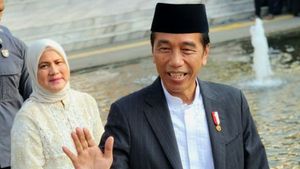JAKARTA - On December 29, 2022, a few days before the end of the year, the Italian Senate approved its budget for 2023, which includes an increase in the tax for crypto investors by 26% on capital gains from trading crypto assets of more than 2.000 euros (IDR 33.2 million).
The approved law defines crypto assets as “digital representations of value or rights that can be transferred and stored electronically, using distributed ledger technology or similar technologies.” Previously, crypto assets were treated as foreign currency in the country, with lower taxes.
As reported by Cointelegraph, the bill also stipulates that taxpayers will have the option to declare the value of their digital asset holdings on January 1 and pay 14% tax, an incentive meant to encourage Italians to declare their digital assets.
Other changes introduced by the budget law include a tax amnesty to reduce fines for late tax payments, fiscal incentives for job creation and a reduction in the retirement age. This also includes a tax break of 21 billion euros (IDR 348 trillion) for businesses and households facing an energy crisis.
SEE ALSO:
Giorgia Meloni, the first woman to serve as prime minister of Italy, won widespread support for her bill from the legislature, even though she promised dramatic tax cuts when elected in September.
According to local media reports, measures by the Italian government to reduce gas consumption across the country included more than 15 days without central heating for buildings, and residents were asked to turn heating down by one degree and turn them off for one more hour per day during the cold season.
The Italian law follows the approval of the Markets in Crypto Assets (MiCA) Bill on October 10, which establishes a consistent regulatory framework for cryptocurrencies in the 27 member states of the European Union. MiCA is expected to enter into force in 2024.
The English, Chinese, Japanese, Arabic, and French versions are automatically generated by the AI. So there may still be inaccuracies in translating, please always see Indonesian as our main language. (system supported by DigitalSiber.id)

















